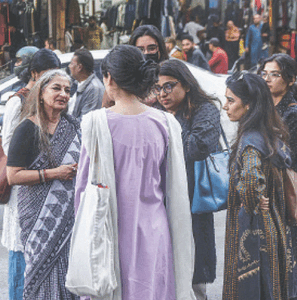KARACHI, Jan 12: Legal and medical experts who appeared before a full bench of the Federal Shariat Court here on Monday strongly supported the provisions of the Transplantation of Human Organs Tissues Ordinance which bar donation of kidneys and other organs to foreigners and require permission of an ‘evaluation committee’ for donation by Pakistanis not closely related to the donee.
The provisions, Sections 3 (1), 5 (1) and 7 (1), have been challenged as un-Islamic by the Society of Transplant Physicians and Surgeons, Rawalpindi, through Advocate M. Aslam Khaki.
Section 3 (1) allows donation of any organ or tissue by parents, sons, daughters, sisters, brothers and spouses without reference to any committee provided it is voluntary, genuinely motivated and without any duress or coercion. Section 5 says that an evaluation committee consisting of a surgical specialist, a medical specialist, a nephrologist, a neurophysician, an intensivist (where available) and two ‘local notables having a good record of social service’ shall be set up by the federal government for every recognised medical institution and hospital where at least 25 transplants are being carried out annually to regulate donations by strangers or persons not closely related to the donee. Section 7 (1) bars donation to foreigners.
The petition claims that Section 7 (1) has been inserted at the behest of European hospitals which charge about $150,000 from foreign nationals, particularly Middle Eastern patients. Close relationship does not ensure compatibility and such relations may not be available or willing in every case. While organ trade must be discouraged, there should be no restriction on payment of compensation. There are no such curbs in Iran, Dubai (the UAE) and China and many Pakistanis go there for transplantation.
A member of the National Assembly, Mrs Riffat Amjad, the petition asserts, had to get operated for a liver transplant in China at the expense of Rs8 million to the public exchequer but could not survive due to non-compatibility of recipient and donor database. Islam firmly believes in protection of human life and the bar on foreigners, particularly alien Muslims, is not permissible. Most kidney patients require urgent transplant and the composition of the ‘evaluation committee’ is not conducive to prompt action.
As the petition came up for hearing on Monday before an FSC bench comprising Chief Justice Haziqul Khairi and Justices Fida Mohammad Khan and Salahuddin Mirza, Prof Adeebul Hasan Rizvi, head of the Sindh Institute of Urology and Transplantation, gave a comprehensive presentation with the help of slides. He said the country had become notorious for ‘organ trade’ and ‘transplant tourism’ and as a ‘kidney bazaar’ in the absence of a transplantation law or legal curbs on transplant. It earned a bad name, particularly for its medical community, in the foreign media. There was crass and unbridled exploitation of the poor, who donated kidneys to repay their debts or meet other urgent expenses or merely to make ends meet. While there was always a room for improvement, the ordinance could not be faulted for curbing the unethical organ trade.
Advocate Abrar Hasan, former president of the Sindh High Court Bar Association, Human Rights Commission of Pakistan Secretary Iqbal Haider, former Supreme Court Bar Association president Muneer A. Malik and advocate Jawaid A. Siddiqui also supported the impugned provisions as restrictive of unethical medical practices and exploitation of the poor. The screening of donors was essential to curb malpractices and promote transplantation of organs.
Also appearing as amicus curiae, Dr Sajidur Rehman Siddiqui, dean of the Islamic studies faculty of the University of Karachi, said if a human being was a ‘trustee’ of his body and not its ‘owner’, he or she had no authority to make a donation. However, legal provisions could be made by ‘ijtehad’ and ‘ijma’ to meet the new requirements. Legislation could be treated as a mode of ‘ijma’. In any case, there was nothing particularly wrong with the impugned provisions as they checked sale and purchase of human organs and tissues.
































